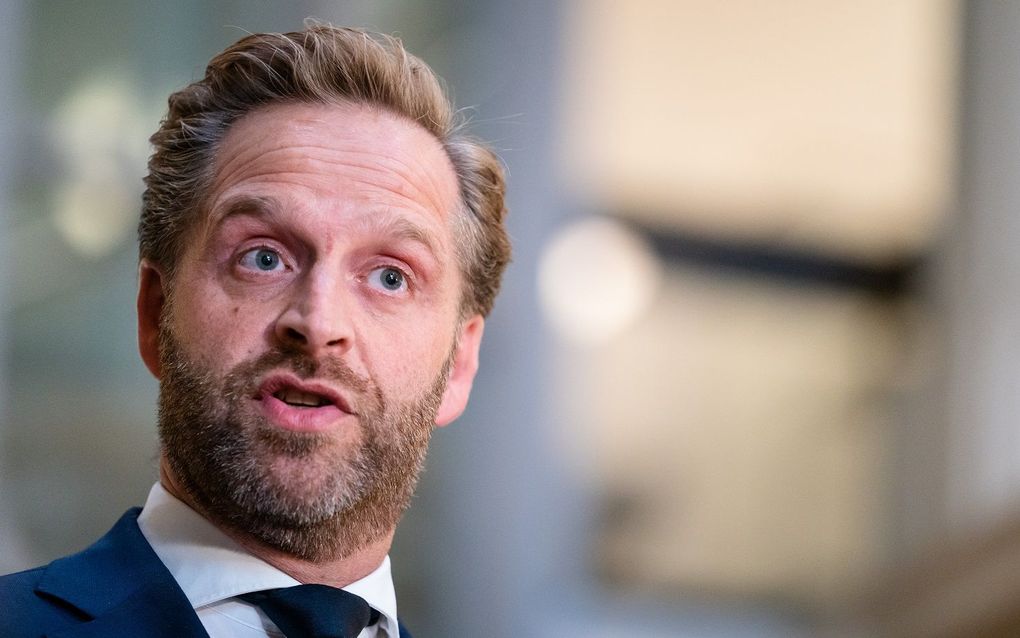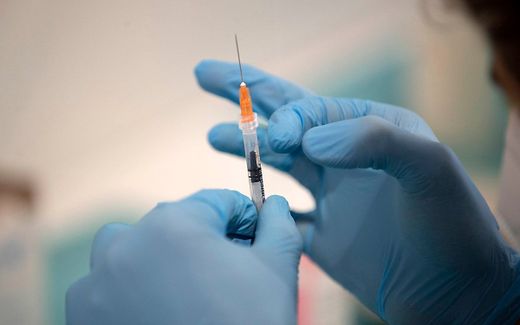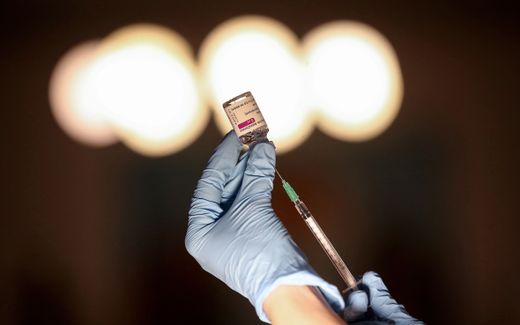Dutch Health minister: No mandatory vaccinations ever
14-10-2021
Western Europe
Jakko Gunst and Addy de Jong, RD

photo ANP, Bart Maat
Western Europe
Mandatory vaccination? “Not now, not ever,” says outgoing Dutch health minister Hugo de Jonge decisively. However, he is keen to appeal to all groups whose willingness to be vaccinated is lagging behind, including people with conscientious objections: “reconsider your choice.” And: “Vaccination is an act of charity.”
“Encouraging.” That’s the first word that comes to De Jonge’s mind when he sees the figures on vaccination rates in the Biblebelt (a strip of land in the Netherlands –that stretches from the southwest, through the centre of the country, to parts in the northeast– with the highest concentration of conservative, orthodox Calvinist protestants). “The assumption that the Reformed denomination would refuse the vaccine en masse turns out to be false. In the vast majority of Bible-belt towns, vaccination is quite common.”
He immediately adds: “But we are not there yet.”
Shortly before the interview, the National Institute for Public Health and Environment, RIVM, published the most up-to-date data on vaccination coverage. Particularly concerning the people aged over 65, these can be called favourable. Except for ten municipalities, at least 85 per cent of the citizens in this age group everywhere received their first vaccination. Of the ten towns that did not yet achieve this percentage, eight are located in the Bible belt. In six of these, the vaccination coverage is already between 75 and 84 per cent. The village of Staphorst (60-74 per cent) lags, as does Urk (40-59 per cent).
You are cautiously optimistic but also urge caution. In what respect precisely?
“To arm ourselves sufficiently against a fourth wave, which may again result in many hospital admissions, it is not only important that the average vaccination coverage is as high as possible. Its homogeneity is at least as crucial. In concrete terms, this means that the vaccination coverage needs to be high in all subgroups of the population to prevent us from having to resort to drastic measures such as a lockdown. Nobody wants that anymore.
If you look at the figures, you see that both people with a low socio-economic position and orthodox Reformed Christians –although the vaccination coverage there is already quite good– still have some catching up to do.”
How do you plan to bring that about?
” To begin with, that requires a delimitation of what a government is and is not about. Take the conscientious objections of Reformed Christians. When it comes to churches, the government has no role. As a minister, I can make a personal appeal to all conscientious objectors: Reconsider your theological objections to vaccination once again. Is vaccination really incompatible with God’s providence? What would God expect of us in this matter? Is it, based on the Bible, not also possible to say: it is God Himself who wanted to provide the vaccines? And: this good gift from His hand is something to be thankful for?
Furthermore, there is one aspect of this discussion that makes it quite complicated. You take a vaccine not only to protect your own health but also that of others. I am convinced that we are also on earth to help and protect each other. Getting vaccinated is one of the best ways of doing this.
Do I respect people’s conscientious objections? Wholeheartedly yes! You are free to make choices in life. I stand for that, but freedom always comes with responsibility. And responsibility means not only taking care of yourself but also of the people entrusted to your care. Therefore, I do reserve the right to ask any group in which the vaccination readiness is still somewhat lagging behind: Please, reconsider your intention not to be vaccinated.”

A part of the orthodox Christians does not reject vaccination in principle but is cautious because of the almost divine status attributed to the vaccine.
“Whether you find it irritating or not depends very much on the evidence. I certainly don’t want to say: People, vaccinate and let all the dangerous mutants come. Certainly not. But it has always fascinated me how the poet of Psalm 8 exclaims about man, “But you have made him almost divine.” First, it is, “What is man, that you are mindful of him?” And then after that, such a surprising exclamation.
That raises the question: What then is this divinity in a man? Ultimately, I think it is the creative power in people — bringing things into being and making things. And in the case of a vaccine: something that protects us from suffering. When you look at it like that, such a drug is something extraordinary. One could even say: it is a fulfilment of providence rather than that it would conflict with it.”
You have now mainly explained what the government is not about. What steps, if any, will be taken?
“We know that various organisations among orthodox Reformed Christians hold informative meetings for their supporters. These primarily address factual questions, such as, for example, how safe is the vaccine? Can it be safe at all if it has been developed so quickly? Is it true that vaccination can lead to infertility?
We greatly appreciate it when, for example, the Dutch Patients Association, NPV (a pro-life movement that forms ideas about medical developments from the perspective of Christian ethics, ed.), or the Reformed Social Union, RMU (a Christian association for employers and employees, ed.), allow us to think along with the design of such evenings. For example, the NPV allowed us to read along with the medical section of their otherwise fantastic vaccination brochure. We appreciate that enormously. And at RMU meetings, it regularly happens that, for example, a doctor of the Municipal Health Service, GGD, is invited to speak. That, too, is a great thing. It helps prevent misinformation from turning out afterwards to be the argument that made people decide against vaccination. That would be a great pity.
I want to emphasise that I do not know the conscientious objectors as people who trivialise the seriousness of the virus, dispute the measures we take against it with all their might, and cast suspicion on the means we employ to put these measures behind us as quickly as possible. I do find it worrying if some of them would make the arguments of the anti-vax movement their own. That does not seem wise to me. Conscientious objections should remain moral objections. It is up to the government to deal with them respectfully.”
At the insistence of the Lower House, you have stressed several times that you are against compulsory vaccination, directly or indirectly. Based on what conviction do you turn against it so fiercely?
“That is because of the integrity of the human body, which is enshrined in our Constitution. I find it difficult to question that. And I don’t want to. We have deliberately built into the law three options that allow people access to events. In addition to a vaccination certificate, they are a negative result of a corona test and proof that you have recovered from an infection you have already contracted. The person checking does not see why the Corona Check App (on your mobile phone, ed.) gives a green checkmark. So, there is no indirect vaccination obligation to access, nor is there a requirement to prove that you have been vaccinated.”
Do you think it conceivable that, under a future government coalition, voices will still raise in favour of an obligation to be vaccinated?
“There is now broad support and understanding for conscientious objectors. Suppose that the virus continues to circulate in several municipalities in the Biblebelt this autumn. Then two groups will end up in the intensive care unit: non-vaccinated people and people for whom the shot did not elicit a sufficient immune response. People will not blame the latter group but do the former.
Suppose your mother’s heart operation has to be postponed because people who had the option of being vaccinated but did not take advantage of it ended up in the hospitals. In that case, this will inevitably lead to tensions. Those can always be translated politically.
Incidentally, I remain deeply convinced that such an obligation will only be counterproductive. So, I will always be on the side of people who say: No mandatory vaccination. Not now and not ever. But the appeal I will continue to make: Vaccination is an act of charity.”
This article was published previously in the Reformatorisch Dagblad on July 7th, 2021.
Related Articles





